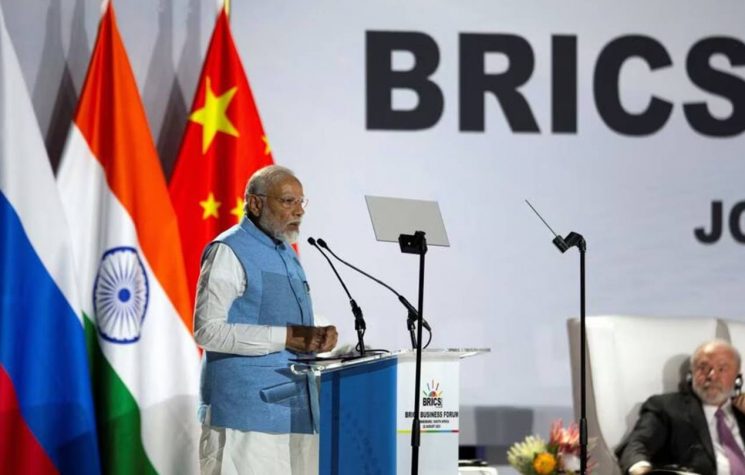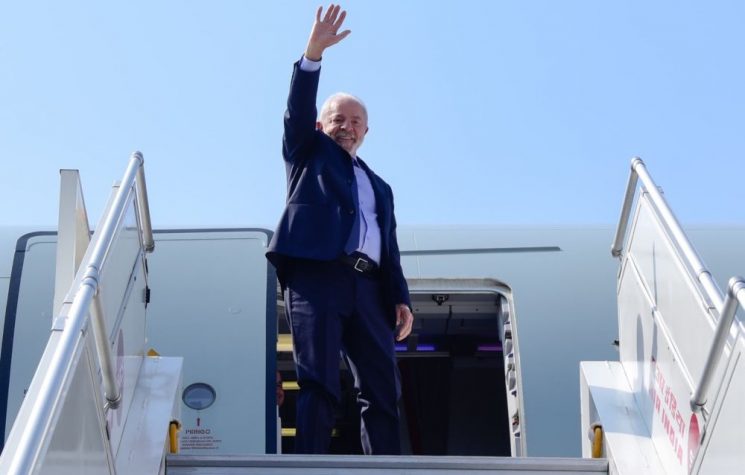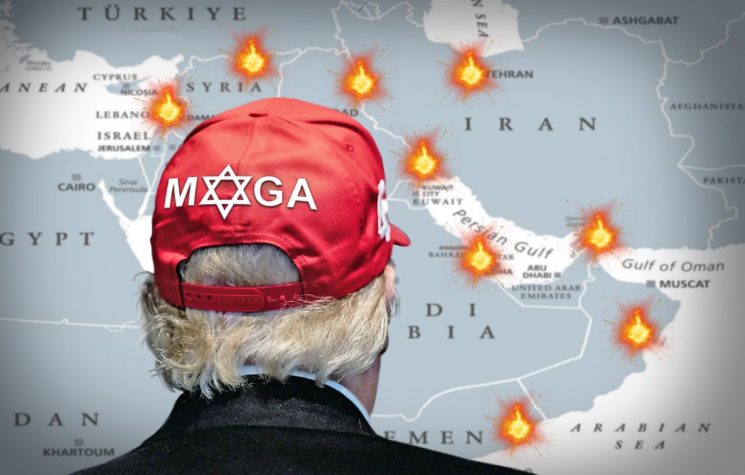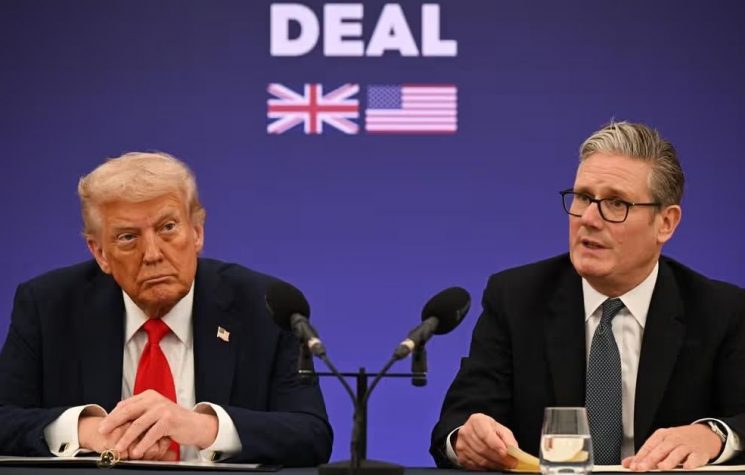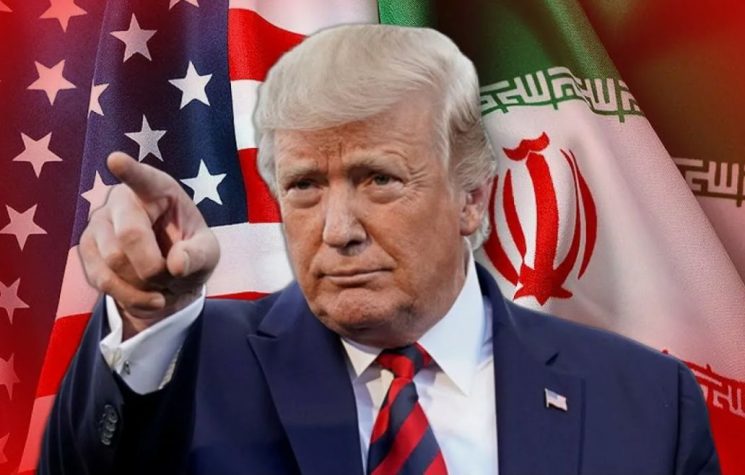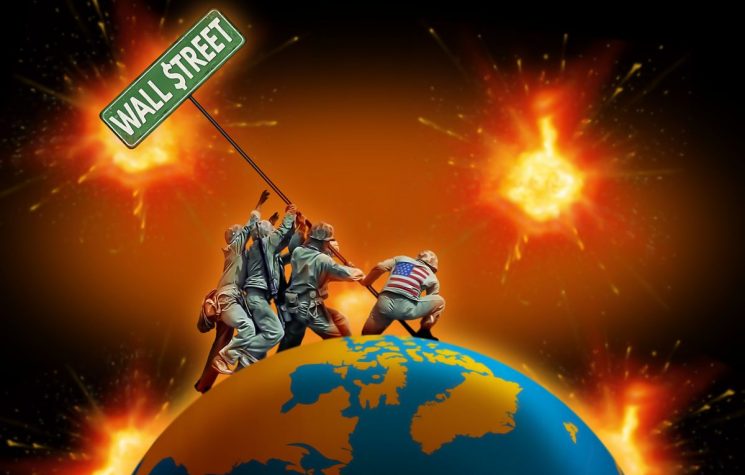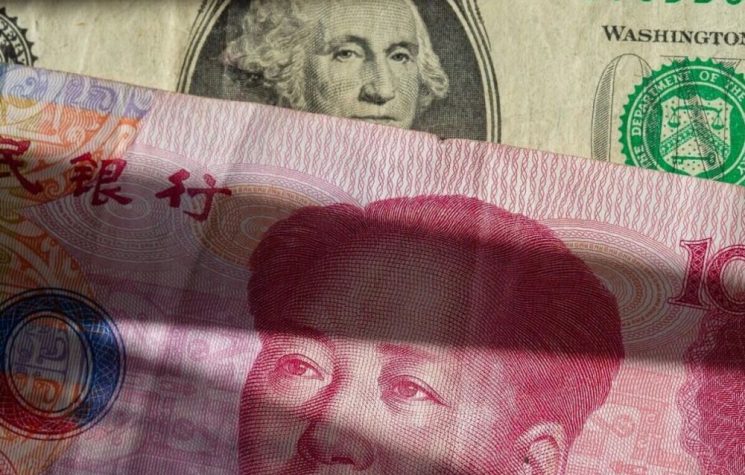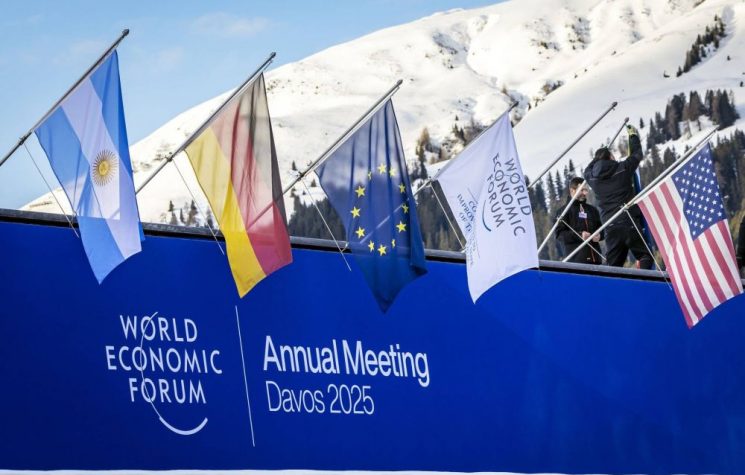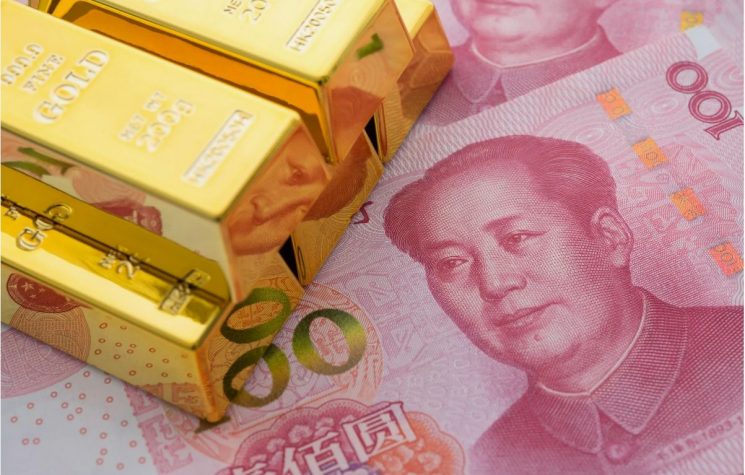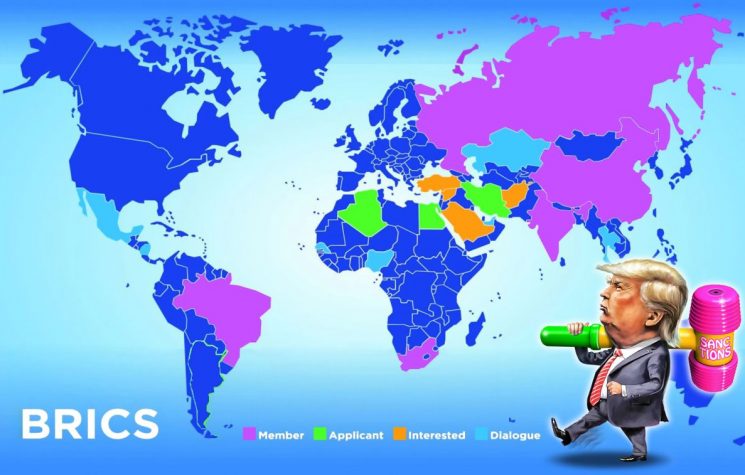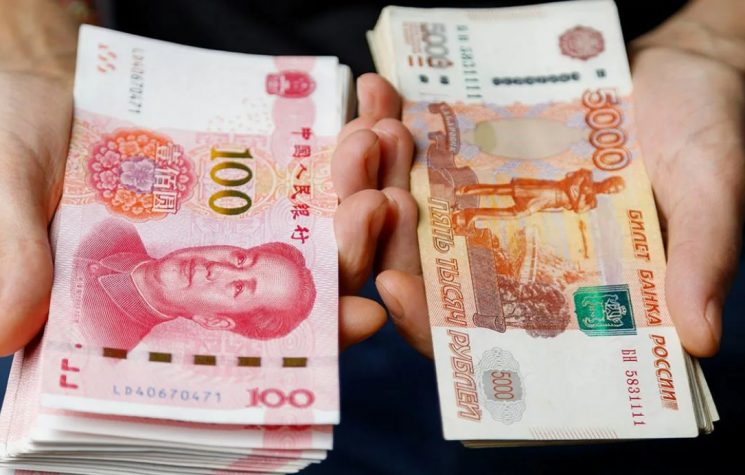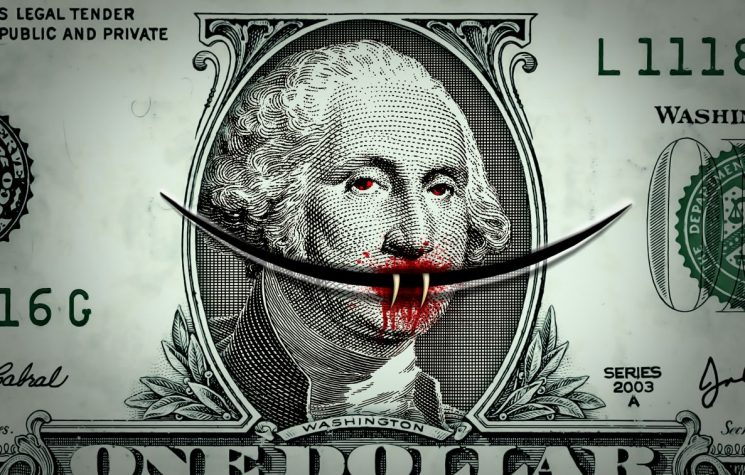Should China succeed, the U.S. would lose its ‘magic weapon’ of monetary dominance.
Join us on Telegram![]() , Twitter
, Twitter![]() , and VK
, and VK![]() .
.
Contact us: info@strategic-culture.su
“I believe we must start from the notion of defeat leading to revolution – to grasp the Trump revolution”.
“The experience underway in the United States, even if we don’t know exactly what it will be, is revolution. Is it a revolution in the strict sense? Is it a counter-revolution?”
So spoke the French historian and philosopher Emmanuel Todd in his April Moscow lecture, From Russia With Love.
“This [Trump revolution] is, in my opinion, linked to defeat. Various people have reported to me conversations between members of the Trump team, and what is striking is their awareness of defeat. People like J.D. Vance, the Vice President, and many others, are people who understood that America had lost this war”.
This American awareness of defeat, however, contrasts markedly with the Europeans’ surprising lack of awareness – rather it is denial – at their defeat:
“For the United States, it is fundamentally an economic defeat. The sanctions policy showed that the financial power of the West was not omnipotent. The Americans were reminded of the fragility of their military industry. The people at the Pentagon know very well that one of the limits to their action is the limited capacity of the American military-industrial complex”.
“That America is in the midst of a serious revolution, right now – easily comparable to the end of the USSR – is understood by a few”. Yet our preconceptions – political and intellectual – often prevent us from seeing and assimilating the import of this reality”.
Todd, to his credit, admits the difficulty with perception readily:
“I must admit that when the Soviet system actually collapsed, I was unable to foresee the extent of the dislocation and the level of suffering this dislocation would cause for Russia. My experience taught me one important thing: The collapse of a system is as much mental as economic ... I didn’t understand that communism was not only an economic organization but also a belief system, a quasi-religion, that structured Soviet and Russian social life. The dislocation of belief would lead to psychological disorganization far beyond economic disorganization. We are reaching a situation of this type in the West today”.
The psychological dislocation caused by ‘defeat’ may explain (but not justify) the West’s ‘curious’ inability to understand world events: The almost pathological dissociation from the real world that it displays in its words and actions: It’s blindness – for example, to the Russian experience of history and to the long history behind Shi’a defiance in Iran. Yet, even as the political situation deteriorates … there is no sign of the West becoming more reality-based in its understanding – and it is very likely that it will continue to live in its alternative construction of reality – until it is forcibly expelled.
Yanis Varoufakis has pointed out that the reality of the prospect of U.S. economic ‘defeat’ was clearly spelled out by Paul Volcker, former chair of the Federal Reserve, when he said that what holds the entire globalist system together had been the massive flow of capital from abroad – running to more than $2 billion every working day – that sustained America’s comfortable, low inflationary lifestyle.
Today, with the U.S. in an era of unsustainable structural budget deficits, Trump is laser-focused on America’s financial core: The Treasury bond market (America’s lifeline) and the stock market (America’s wallet). Both are fragile. And any external pressure could trigger a chain reaction:
“In short, America is no longer confident in its own financial fortress. And China is no longer playing by the old rules. This isn’t just a trade war — it’s a war for the future of global finance”, Varoufakis states. Which is why Trump threatens war on anyone seeking to supplant or bypass the U.S. dollar trading monopoly.
Trump’s “reciprocal tariffs” therefore were never about balancing trade. What they amount to is an attempt to restructure creditors. “It’s what you do in bankruptcy”, as one commentator wryly notes. The demands for greater contributions from NATO states is precisely an exercise in demanding creditor revenue – as was Trump’s Gulf trip).
The purpose of the New Cold War primordially consists in choking off China’s rise. This aim effectively represents common ground amongst all factions of the Establishment – protecting the dollar system from collapse.
The notion of the U.S. recovering its former position as a world-class manufacturing centre is largely a diversional narrative crafted for domestic purposes. In 1950, the U.S. manufacturing labour force made up 33.7 percent of the domestic economy – a figure that has dwindled to less than 8.4 percent today. To revert would take a generational shift.
So, aside from the China consensus, the Ruling Strata is split – with the likes of JD Vance, and the economic team of Stephen Miran and Russel Vought, concerned more by the risk of U.S. overreach undermining the dollar primacy, whilst the hawks advocate reinforcing the dollar hegemony, with clear demonstrative ‘shows’ of U.S. military muscle.
The re-structuring of creditors underpins too Trump’s hurry to do a ‘deal’ with Russia – one that could bring quick business opportunities and positive capital flows (and collateral) onto the U.S.’ capital account. A deal with Iran potentially could even yield Trump’s apotheosis of U.S. energy dominance, resulting in new revenue inflows that would buttress confidence in the dollar.
In short, Trump’s agenda is not long-term strategic. It is the short-term corralling of aggregate demand for the dollar as the only currency which people demand, albeit even though they do not want to buy anything from the country creating the dollars.
The crucial flaw is that Trump’s crude transactionalism is shredding his credibility as a serious geo-political actor and consequently compelling others to hedge against the dollar.
In short, the collapse in credibility caused by Trump’s disdain for reading; for intel briefings; and his reliance on the he or she who last whispered in his ear, lends to policy flip-flops, and a general desire for others to disengage as far as possible from the unpredictable Trumpland.
Emmanuel Todd warns that the classic response to a collapse in the belief system and the particular psyche that has animated the economic paradigm “is anxiety – rather than any state of freedom and well-being. The beliefs that accompanied Western triumphalism are collapsing. But as in any revolutionary process, we do not yet know which new belief is the most important, which belief will emerge victorious from the process of decomposition”.
Revolutions though they generally destroy, their focus is to harness the energies sufficient to eradicate the institutions that were too rigid to integrate into the demand for change that provoked the revolution in the first place.
In this context, the pursuit of a New Cold War against China precisely is centred around U.S. anxiety (as Todd maintains) – primarily the fear that China’s building of a digital ‘super highway’ for money will prove to be much more advanced than the rickety road that is the American dollar road.
Today that super-wide highway may not be so widely used. That’s now. But already there is a migration from the old road to the Chinese Super highway, as Varoufakis underlines to the Chinese.
For the American Establishment, the Chinese ‘super-highway’ constitutes a ‘clear and present’ danger to its hegemony. The anxiety is not really about Chinese intellectual property or ‘IP theft’. It is the fear that the U.S. cannot keep up with the new financial ecosystems being constructed by China, or the sophistication of the digital yuan.
This anxiety is aggravated – not least – because the Fintech overlords of Silicon Valley are at daggers drawn with the big Wall Street clearing banks (who want to preserve their antiquated systems). China has the advantage here, as its financial and tech sectors are fused, as one.
The fear is plain: Should China succeed, the U.S. would lose its ‘magic weapon’ of monetary dominance:
“And here is the ‘revolution’: No fireworks, no Western headlines. Just one quiet early morning in Beijing where the dollar’s crown slipped. The world’s financial plumbing just got a reroute—through the China [super highway]”
“For the first time ever, China’s CIPS (Cross-Border Interbank Payment System) surpassed SWIFT in single-day transaction volume. A red banner flashed across Bank of China’s HQ at 1:30AM on April 16, 2025”.
“CIPS [as Zerohedge tells it] processed a jaw-dropping ¥12.8 trillion RMB in just one day—roughly $1.76 trillion USD. That volume, if verified, overtakes the greenback-dominated SWIFT system in sheer daily cross-border throughput”.
Yes – It’s all about money.










